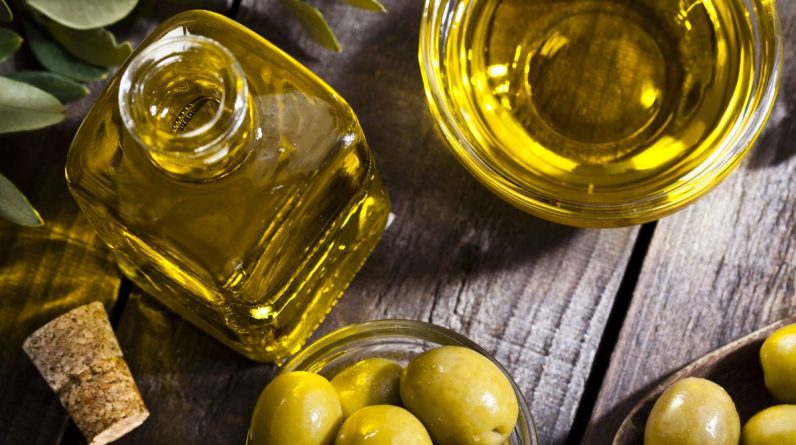
Olive Oil: A Heart-Healthy Superfood That Aids in Fat Burning
Olive oil, a staple in the Mediterranean diet, has long been revered for its numerous health benefits. Renowned for its rich flavor and versatility, olive oil is not only a delicious addition to your culinary creations but also a powerhouse of nutrients. Among its many advantages, olive oil stands out for its remarkable ability to protect the heart and facilitate fat burning. In this article, we will explore the science behind these benefits and why incorporating olive oil into your diet can lead to a healthier heart and a trimmer waistline.
History of Olive Oil
Ancient Roots
Olive oil is one of the oldest known culinary oils. Its production dates back to ancient Greece and Rome, where it was a highly valued commodity. It was used not only for cooking but also as a medicine, a cosmetic, and even as a fuel for lamps.
Modern Production
Today, olive oil is produced in many parts of the world, including Spain, Italy, and Greece, as well as in the United States, Australia, and South Africa. The production process involves pressing the olives to extract the oil, then filtering and bottling the oil for sale.
Types of Olive Oil
There are many different types of olive oil, each with their own unique characteristics and uses. Some of the most common types include extra-virgin olive oil, virgin olive oil, and light olive oil.
John David, Chef
| Type | Description |
| Extra-virgin olive oil | The highest quality and most flavorful olive oil; it is produced by cold-pressing the olives without the use of heat or chemicals |
| Virgin olive oil | Similar to extra-virgin olive oil but with slightly lower acidity and less pronounced flavor |
| Light olive oil | A less flavorful and less healthy type of olive oil that is heavily processed and usually mixed with other oils |
Nutritional Benefits of Olive Oil
Let’s delve into some of the key nutrients found in olive oil and their potential health advantages:
Monounsaturated Fats:
Antioxidants:
These antioxidants help protect the body against oxidative stress, which can lead to chronic diseases and premature aging.
Vitamin E:
Olive oil is a good source of vitamin E, a fat-soluble vitamin with antioxidant properties. Vitamin E plays a vital role in protecting cell membranes from damage and supports healthy skin, hair, and immune function.
Anti-inflammatory Properties:
Regular consumption of olive oil may help reduce inflammation and its detrimental effects.
Cardiovascular Health:
These fats can help improve cholesterol levels by increasing HDL (good) cholesterol and reducing LDL (bad) cholesterol, thereby reducing the risk of heart disease.
Digestive Health:
Olive oil has a mild laxative effect and can aid in promoting healthy digestion.
Brain Health:
Some studies suggest that the monounsaturated fats and antioxidants in olive oil may contribute to brain health.
Weight Management:
Despite being calorie-dense, olive oil can be beneficial for weight management. Its monounsaturated fats may aid in fat burning and promote satiety, helping to control appetite and reduce calorie intake.
The recommended daily intake is about 2 tablespoons (30 ml) per day as part of a balanced diet.
Incorporating olive oil into your meals is a simple way to harness its nutritional advantages.
Heart Health and Olive Oil
According to numerous studies, people who consume a diet rich in olive oil have a reduced risk of heart disease, stroke, and high blood pressure.
– Dr. Maria Rodriguez, Cardiologist
Reduced Cholesterol Levels
This can help promote heart health and reduce the risk of heart disease.
Lower Inflammation
Inflammation is a common contributor to heart disease, and olive oil has been shown to have anti-inflammatory properties. This can help protect the heart and reduce the risk of heart disease.
Olive Oil and Fat Burning
Believe it or not, adding olive oil to your diet can actually help you burn fat. That’s because olive oil is high in healthy fats that can help to balance blood sugar and promote feelings of fullness. It can also increase your metabolism and help burn more calories throughout the day.
How to Incorporate Olive Oil into Your Diet
Salad Dressing
Whisk together olive oil, vinegar, and herbs for a simple and flavorful salad dressing.
Sautéed Veggies
Add some healthy fats to your stir fry or sautéed vegetables by using olive oil instead of butter or margarine.
Grilled Fish or Meat
Rub olive oil, garlic, and herbs onto fish or meat before grilling for a delicious and heart-healthy meal.
Dipping Sauce
Use olive oil and balsamic vinegar as a dipping sauce for bread, instead of butter or margarine.
Choosing and Incorporating Olive Oil
To reap the maximum benefits, it’s important to choose the right type of olive oil. Look for EVOO that is certified and preferably from a trusted source to ensure authenticity and quality.
Incorporating olive oil into your daily routine is simple. For frying or deep-frying, it’s best to choose alternative cooking oils with higher smoke points.
Olive oil is much more than just a flavorful addition to your favorite foods. It’s a powerful and versatile superfood that can improve your health in a variety of ways. From reducing the risk of heart disease to aiding in fat burning, olive oil should be a staple in anyone’s diet. To incorporate olive oil into your own diet, start small and try using it in your favorite recipes. Over time, you’ll see the many health benefits that come from this amazing superfood.






